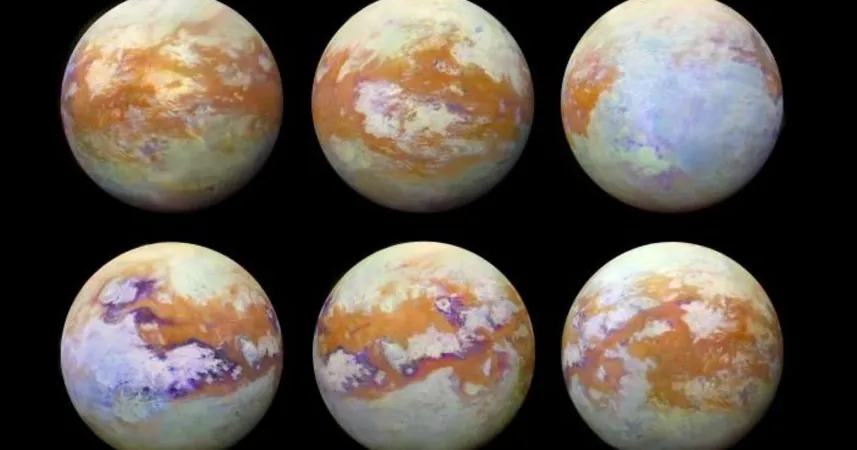
Unlocking the Secrets of Titan: Can Life Really Thrive on Saturn's Mysterious Moon?
2025-05-24
Author: Charlotte
NASA's groundbreaking Dragonfly mission is set to embark on an extraordinary journey to Saturn's enigmatic moon, Titan, in just over three years. Scheduled for arrival in 2034, this ambitious mission is on the hunt for signs of life on a world thought to mirror some of Earth's conditions.
Titan is notorious for its dense atmosphere, primarily composed of liquid methane instead of water, presenting a unique challenge to the notion of life as we understand it. This curious moon is layered with ice and soot rather than rocks and sand, raising pressing questions about its habitability.
A fresh study from the University of Arizona sheds light on Titan's secrets, dissecting whether life could truly flourish there. Co-led by Antonin Affholder and Harvard's Peter Higgins, the research emphasizes Titan's rich organic content but warns of unique limiting factors.
"Titan's abundant organic molecules largely raise hopes for sustaining life," said Affholder. "However, not all are food sources, and with a vast ocean that has minimal exchange with surface organics, we're advocating for a more nuanced perspective."
Published in The Planetary Science Journal, the team's bioenergetic modeling reveals that while Titan's ocean—potentially 300 miles deep—could support basic life forms, the proliferation of such organisms remains restricted.
The primary barrier to life’s flourishing on Titan is a notable scarcity of consumable molecules. With virtually no oxygen in the ocean, any potential microorganisms would need to rely on fermentation rather than respiration—a survival strategy reminiscent of Earth’s earliest life.
The researchers specifically examined the potential for glycine, a key amino acid, to catalyze life. Affholder wondered, "Could similar microbes exist on Titan? What does the subsurface ocean offer to support a biosphere drawing from its wealth of organic molecules?"
Though glycine is often found in cosmic debris across the solar system, Titan's icy surface means that little of it can seep into the ocean below. This leaves any hopeful microbes perpetually starving, with insufficient resources to thrive.
Thus, while the prospect of finding life on Titan isn’t entirely ruled out, any microbial existence would likely be exceedingly rare, minuscule, and elusive, making the quest for discovery a daunting challenge amidst the vast oceanic expanse.









 Brasil (PT)
Brasil (PT)
 Canada (EN)
Canada (EN)
 Chile (ES)
Chile (ES)
 Česko (CS)
Česko (CS)
 대한민국 (KO)
대한민국 (KO)
 España (ES)
España (ES)
 France (FR)
France (FR)
 Hong Kong (EN)
Hong Kong (EN)
 Italia (IT)
Italia (IT)
 日本 (JA)
日本 (JA)
 Magyarország (HU)
Magyarország (HU)
 Norge (NO)
Norge (NO)
 Polska (PL)
Polska (PL)
 Schweiz (DE)
Schweiz (DE)
 Singapore (EN)
Singapore (EN)
 Sverige (SV)
Sverige (SV)
 Suomi (FI)
Suomi (FI)
 Türkiye (TR)
Türkiye (TR)
 الإمارات العربية المتحدة (AR)
الإمارات العربية المتحدة (AR)